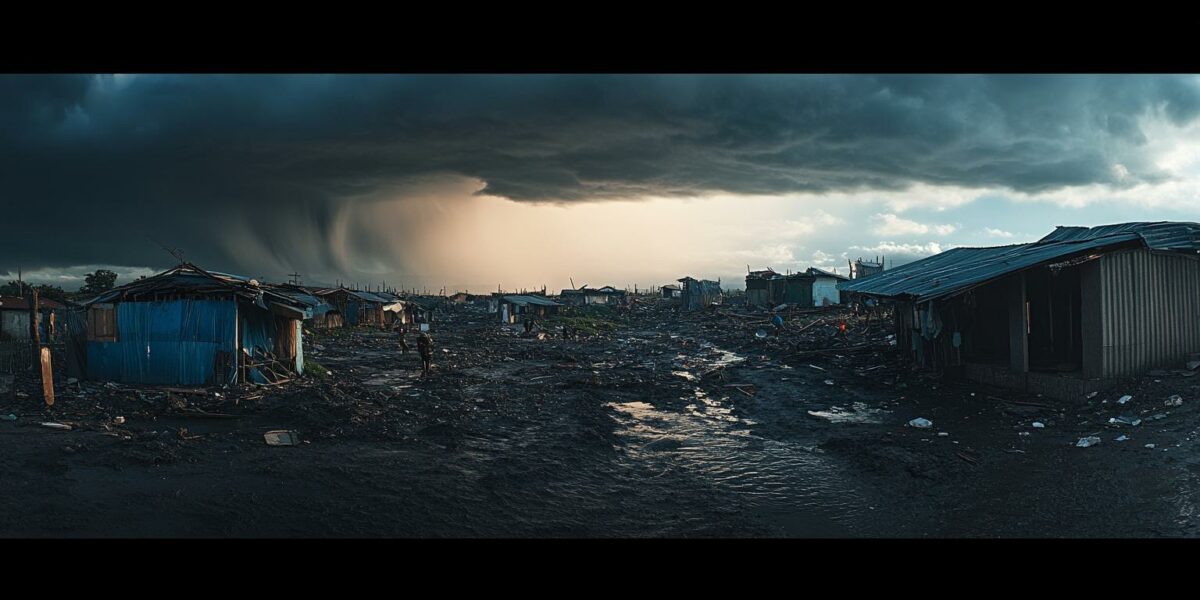Breaking New Ground on Climate Finance
As COP29 approaches, countries are gearing up to finalize the details of a pivotal loss and damage fund. This financial mechanism is designed to assist nations most affected by climate change, potentially disbursing funds by 2025. The focus is on ensuring that those facing severe climate impacts receive much-needed support.
Progress has been made in recent months, with procedural issues being resolved. A governing board has been established, and the World Bank has controversially been chosen as its institutional home. Significantly, the Philippines has been selected as the host country for this fund.
At a pre-COP meeting in Azerbaijan, Ibrahima Cheikh Diong was appointed as the fund’s executive director. This decision marks a crucial step towards actualizing the fund’s potential to aid climate-vulnerable nations beginning in 2025.
COP29 president-designate Mukhtar Babayev emphasized the significance of this development, calling it a historic day that reflects a commitment to addressing the needs of those on the climate crisis frontlines.
The Long Struggle for Climate Justice
For three decades, small island nations, African countries, and activists have fought for a functional loss and damage fund. Wealthy nations have resisted, fearing it equates to compensation for their historical emissions. Yet, their dedication has brought about essential agreements in recent years.
During COP27 in Egypt, an agreement was reached to establish a fund to aid low-income countries affected by climate disasters. Progress continued at COP28 in Dubai, where a historic decision was made to create the fund with over $700 million in pledges.
Despite these advances, the fund’s current value remains insufficient. It has only grown to around $800 million, and wealthy nations have been reluctant to increase their contributions.
Key points to consider include:
- The fund’s target is $100 billion annually by 2030.
- Estimates predict losses could reach $400 billion annually by 2030.
- Urgent actions are needed to prevent further financial shortfalls.
Funding Falls Short of Urgent Needs
Advocates hoped for increased commitments from wealthy nations, but progress has stalled. The fund’s current value is a fraction of what’s needed, with experts calling for substantial contributions to meet the escalating costs of climate change impacts.
The Bahamas Prime Minister, Phillip Davis, highlighted the issue at the UN General Assembly, emphasizing that this is not just about funding but also about sustainability and survival. He stressed that without it, peace and security are meaningless.
Davis argued that developed nations bear the responsibility to contribute significantly, as they have historically emitted the most greenhouse gases. He called for the fund to be fully operationalized, reflecting the scale of the ongoing crisis.
As COP29 approaches, the presidency aims to secure further contributions, emphasizing the urgency of addressing this significant financial gap to ensure the fund’s effectiveness.
Challenges and Hopes for the Future
The fund’s progress underscores the ongoing challenges climate-vulnerable nations face. The need for adequate financial support remains critical, as these countries continue to bear the brunt of climate change impacts. The challenge lies in turning pledges into tangible support.
While significant strides have been made, the journey toward climate justice is far from over. The hope is that COP29 will bring about renewed commitments and increased contributions, aligning with the global vision for a sustainable future.
The plight of climate-vulnerable nations highlights the importance of international cooperation in addressing these challenges. The fund’s success hinges on collaborative efforts to ensure financial support reaches those in dire need.
As the world watches, the outcome of COP29 will be pivotal in determining the future of climate finance and the collective responsibility to support those on the frontlines of climate change.



Mariah
Will the $100 billion target by 2030 be enough, considering the predicted $400 billion in losses?
cameron_serenity
Finally, some progress for small island nations! Can’t believe it’s taken this long.
haleyquester6
How does the World Bank plan on managing the fund? Hopefully, it’s not just another bureaucratic mess!
James1
How can individuals contribute to climate justice efforts like this one? Would love to get involved.
Daniel_Ember
Thank you for shedding light on this crucial topic. Let’s hope COP29 brings more progress.
DanielEmber
Only $800 million so far? That’s like pocket change compared to what’s needed. 😅
lincoln
Why is the World Bank involved? Isn’t their track record on environmental issues a bit sketchy?
Boots
I hope this fund becomes a real game-changer for the Philippines and other vulnerable countries. 🌎
charles5
It’s about time the World Bank stepped up for climate justice! Do you think their involvement will speed up the process?